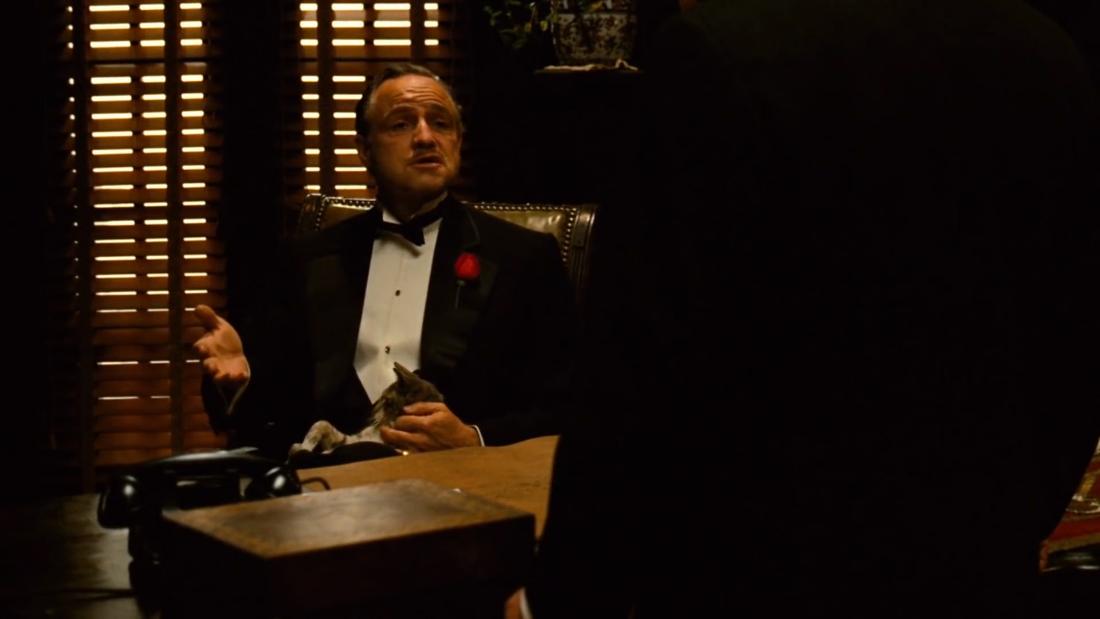[ad_1]
Using “essential” as the criteria helps shape what makes the grade, with various considerations coming into play: The best, yes, but also the most influential, with the longest tails. Movies that hold up upon repeat viewing, but also those that define and capture the times in which they were made.
For those tempted to include multiple Alfred Hitchcock or Humphrey Bogart movies from one decade, there’s value in seeking to represent key stars and filmmakers. And finally, what you’d pack if you were stranded on an island and could only take a handful of films with you.
The ’70s, notably, ushered in what’s widely considered the modern era at the major studios — for better and worse — with first “Jaws” and then “Star Wars” rewriting expectations for box-office blockbusters, especially during the summer.
Inevitably, such a list means leaving personal favorites on the cutting-room floor, especially in terms of comedies. “This is Spinal Tap” and “The Princess Bride,” too bad we couldn’t turn things up to 11.
Yet when push came to shove, the question “What movies should everyone have seen from the ’80s?”– especially if they want to understand not only those years, but where the entertainment industry finds itself today — produced the following selections, presented in chronological order:
“Raging Bull” (1980)
Boxing movies and biographies came together in Martin Scorsese’s gloriously shot black-and-white ode to Jake LaMotta, merely one of the director’s memorable collaborations with Robert De Niro. There have been a lot of great films in both genres, but few can lay a glove on this one.
“The Empire Strikes Back” (1980)
“Star Wars” is a landmark movie, but it wouldn’t be the “Episode IX” franchise that it is without a sensational sequel that remains the best film in the series and which dramatically raised the stakes in the “I am your father” history of the Skywalker family.
“Raiders of the Lost Ark” (1981)
Steven Spielberg and George Lucas’ collaboration produced an iconic ode to serials of the past, one of the all-time great heroes in Indiana Jones, another signature role for Harrison Ford and not incidentally, perhaps composer John Williams’ most stirring score.
“Blade Runner” (1982)
Director Ridley Scott’s dystopian vision of an acid-rain-soaked Los Angeles basically set the tone for nightmarish images of what might be to come, as well as an early exploration of artificial intelligence in the context of what it means to be human.
“E.T. the Extraterrestrial” (1982)
Spielberg’s mix of childhood wonder, optimism and heart (glowing, in this case) in suburbia reached its apex — certainly commercially — in this over-the-moon tale about a young boy befriending a stranded alien.
“Amadeus” (1984)
The winner of eight Oscars, director Milos Forman’s look at Mozart (Tom Hulce) and the man who understood and envied his genius (F. Murray Abraham) was both a ravishing period piece and a movie that captured the creative process as few have, before or since.
“The Terminator” (1984)
James Cameron’s sci-fi concept saw the future in more ways than one, lifting Arnold Schwarzenegger’s career as a killer cyborg and providing the template for a host of movies about technology run amok and tinkering with the timeline to save the world. Schwarzenegger’s killer machine promised “I’ll be back,” which it was, in one form or another, again and again.
“Blue Velvet” (1986)
David Lynch’s bizarre mix of soap opera and creepiness might have actually found its peak (or peaks) on TV, but the director brought all of his quirky gifts together in this dark and unsettlingly funny film — where the plot’s set in motion by a severed ear — featuring Kyle MacLachlan, Isabella Rosselini and an even-crazy-by-his-standards performance by Dennis Hopper.
“Die Hard” (1988)
The “Is it a Christmas movie?” debate continues 30 years after Bruce Willis’ action thriller from director John McTiernan (who left another big ’80s footprint with “Predator”) set the stage for dozens of copycats, while serving notice that Alan Rickman was one of the best bad guys ever. Yippee ki-yay, indeed.
“Do the Right Thing” (1989)
Spike Lee’s third movie remains his masterpiece, a sobering look at racial tensions simmering under the surface, police abuse and the empathy exhibited toward its characters, which still feels relevant 30 years later. Its significance also extends to the role the movie played in paving the way for other African-American filmmakers, prompting the late critic Roger Ebert to call it, in a 1991 essay, “the most important American film of recent years.”
[ad_2]
Source link











